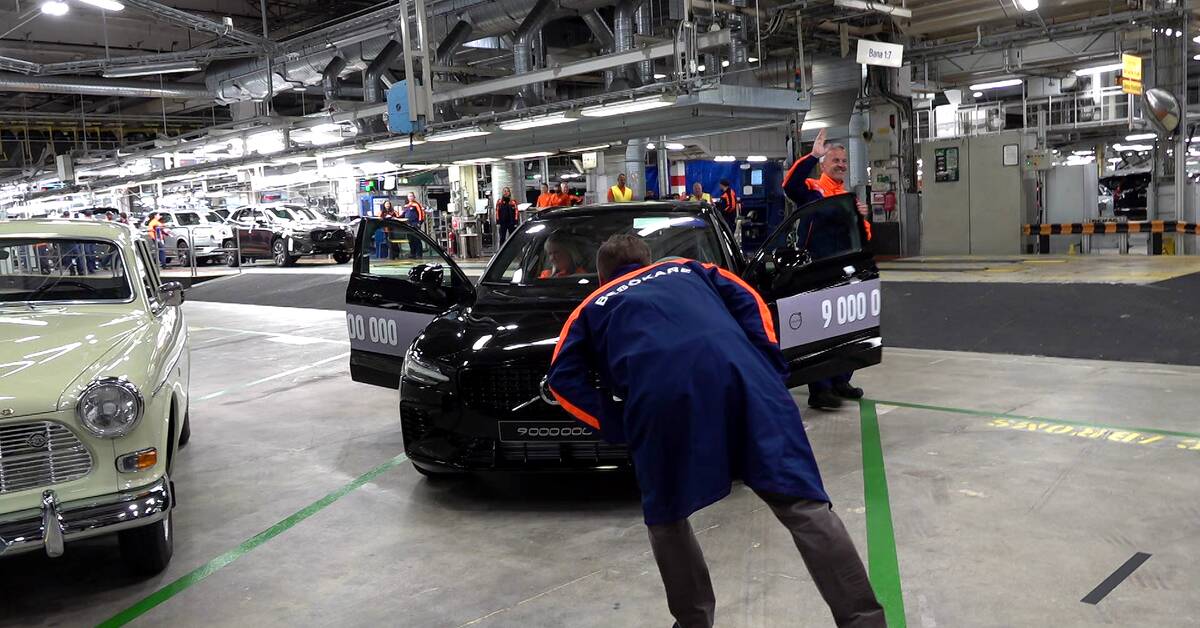In the clip you can see when the nine millionth Götebogs-made Volvo rolls off the belt.
One of the first manufactured cars in the factory, an Amazon estate car from 1964, was neatly parked next to the production line where the new models rolled out.
When car number 9,000,000 appeared, it was "completely randomly" a plug-in hybrid, the closest to the Torslanda factory today comes to electric power. But the factory will now be rebuilt for just over SEK 10 billion to manufacture only electric cars.
Fully electrified by 2030
Already in seven years by 2030, all Volvo's cars will be electric cars. The European Parliament was supposed to take an equally clear indication of the direction of travel in March, but that did not quite happen. Germany managed to block the decision, get an amendment and suddenly there was no EU decision to ban internal combustion engines.
How do you now react to the fact that the EU has backed away from a ban on internal combustion engines?
"We stick to our goal and what our customers want from us. So we stick to what we promised, only electric cars by 2030," says Javier Varela.
The addition to the EU decision thus makes it possible to sell cars with combustion engines even after 2035, but only those that use carbon-neutral fuels.
Drawdown despite profit crush
Volvo Cars posted an operating profit of SEK 5.1 billion for the first quarter of the year. But despite the crush in profits, it was recently announced that Volvo Cars is cutting its workforce by 1,300 positions.
An increased focus on "cost optimization and resource efficiency" was the motivation for the reorganization.
"It has been a tough economic time with increased competition," said Maria Dagman, press spokesperson at Volvo Cars, to SVT.

